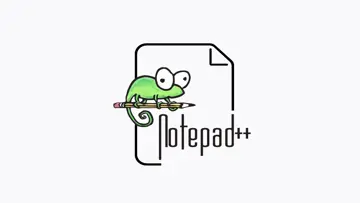13.0 Seguro para instalar
The Haskell programming language is now available for iPad, iPhone, and iPod touch. This programming language is a versatile tool suitable for academic study, complex mathematical computations, as well as other practical tasks. The application is particularly beneficial for individuals keen on learning the intricacies of Haskell, although users need to purchase compilations within the app. An internet connection is necessary for operation.
- The application presents a comprehensive programming tool on the AppStore.
- Users find an impressive programming language experience on iOS.
FEATURES
- Compile and execute your programs.
- Text input before program execution and text output support.
- Enhanced source code editor with syntax highlighting, line numbers, color themes, and additional keyboard functionality.
- Access to online language reference materials and various program samples.
LIMITATIONS
- An internet connection is mandatory for program compilation and execution.
- Functionality such as graphics, network capabilities, file system access, and real-time input is not available.
- A maximum program running time of 15 seconds is enforced.
Thank you for utilizing our application!
Haskell stands out as a standardized, general-purpose functional programming language characterized by strong static typing and non-strict semantics. Named after logician Haskell Curry, the language advocates that "a function is a first-class citizen." With functional programming at its core, Haskell governs programming structures emphasizing functions as the primary control construct.
Interest in lazy functional languages surged following Research Software Ltd's release of Miranda in 1985, resulting in over a dozen non-strict purely functional languages by 1987. Notably, Miranda was widely employed but remained proprietary. A milestone in functional programming history occurred during the conference on Functional Programming Languages and Computer Architecture held in Portland, Oregon when participants decided to form a committee to define an open standard for these languages. The committee's objective was to amalgamate these functional languages into a common framework for future research in functional-language design.
Haskell's prominent features encompass lazy evaluation, pattern matching, list comprehension, type classes, and type polymorphism. As a purely functional language, Haskell prioritizes functions without side effects. Specific constructs represent side effects distinctly from typical functions – facilitating model representations akin to other languages' impure functions by introducing side-effects where necessary. Haskell boasts a robust static type system founded on Hindley–Milner type inference with notable contributions like type classes that enable principled overloading and serve various purposes.
The construction representing side effects is exemplary of a monad – offering a universal structure to model diverse computation types including error handling, nondeterminism, parsing, and software transactional memory. Although monads are defined as regular data types, Haskell simplifies their usage with useful syntactic sugar.
Haskell maintains an open published specification with multiple implementations available. A vibrant community surrounds the language aiding in the existence of over 5400 third-party open-source libraries and tools accessible via the online package repository Hackage.
The primary Haskell implementation – GHC – functions as both an interpreter and native-code compiler compatible with most platforms. Noteworthy for its high-performance concurrency and parallelism features along with an enriched type system encompassing contemporary concepts like generalized algebraic data types and type families – GHC serves as a formidable embodiment of Haskell's potential.
Visão geral
Haskell Programming Language é um software Freeware na categoria Educação desenvolvido pela Anastasia Kovba.
É a versão mais recente de Haskell Programming Language 13.0, lançado em 31/05/2024. Inicialmente foi adicionado ao nosso banco de dados em 31/05/2024.
Haskell Programming Language é executado nos seguintes sistemas operacionais: iOS.
Usuários de Haskell Programming Language deram-lhe uma classificação de 3 de 5 estrelas.
Relacionado
bashi - programming language
This app is an iOS bash4.3 application that allows users to learn, run, and share bash4.3 scripts. Key Features: Autocomplete functionality Auto-indent feature for code Code color customization Select text for execution in the built-in …C/C++$-offline compiler for os
This is an iOS C/C++ app that allows users to learn, run, and share C++ code offline. It offers various features such as autocompletion, auto indenting, and code coloring.C++ IDE Fresh Edition
Grammar is highlighted in the learning materials to facilitate learning. The inclusion of directly runnable code examples makes it convenient for you to test.cl-repl
Review: The Common Lisp REPL provides essential features such as a basic editor, a command line interface, and a debug dialog for restarts. It comes pre-configured with support for Swank/Slime and Quicklisp.Gambit REPL
Gambit REPL is a concise development environment tailored for the Scheme programming language, built upon the Gambit Scheme programming system.Rust Programming Compiler
Develop Rust code directly on your iOS devices with this application, suitable for both learning and experimenting with code snippets.com o UpdateStar gratuito.
Últimas revisões
|
|
TAP-Windows
Proteja sua conexão com o TAP-Windows! |
|
|
Epson Data Collection Agent
Recolha de dados eficiente com o Epson Data Collection Agent |
|
|
Google Earth Pro
Explore o mundo em detalhes impressionantes com o Google Earth Pro. |
|
|
Total Commander PowerPack
Aumente seu gerenciamento de arquivos com o Total Commander PowerPack! |
|
|
GOM Media Player
GOM Media Player: um reprodutor multimídia versátil para todas as suas necessidades |
|
|
Canon G2000 series MP Drivers
Drivers de impressora eficientes para a série Canon G2000 |
|
|
UpdateStar Premium Edition
Manter seu software atualizado nunca foi tão fácil com o UpdateStar Premium Edition! |
|
|
Microsoft Edge
Um novo padrão na navegação na Web |
|
|
Microsoft Visual C++ 2015 Redistributable Package
Aumente o desempenho do seu sistema com o Microsoft Visual C++ 2015 Redistributable Package! |
|
|
Google Chrome
Navegador da Web rápido e versátil |
|
|
Microsoft Visual C++ 2010 Redistributable
Componente essencial para executar aplicativos do Visual C++ |
|
|
Microsoft OneDrive
Simplifique o gerenciamento de arquivos com o Microsoft OneDrive |









